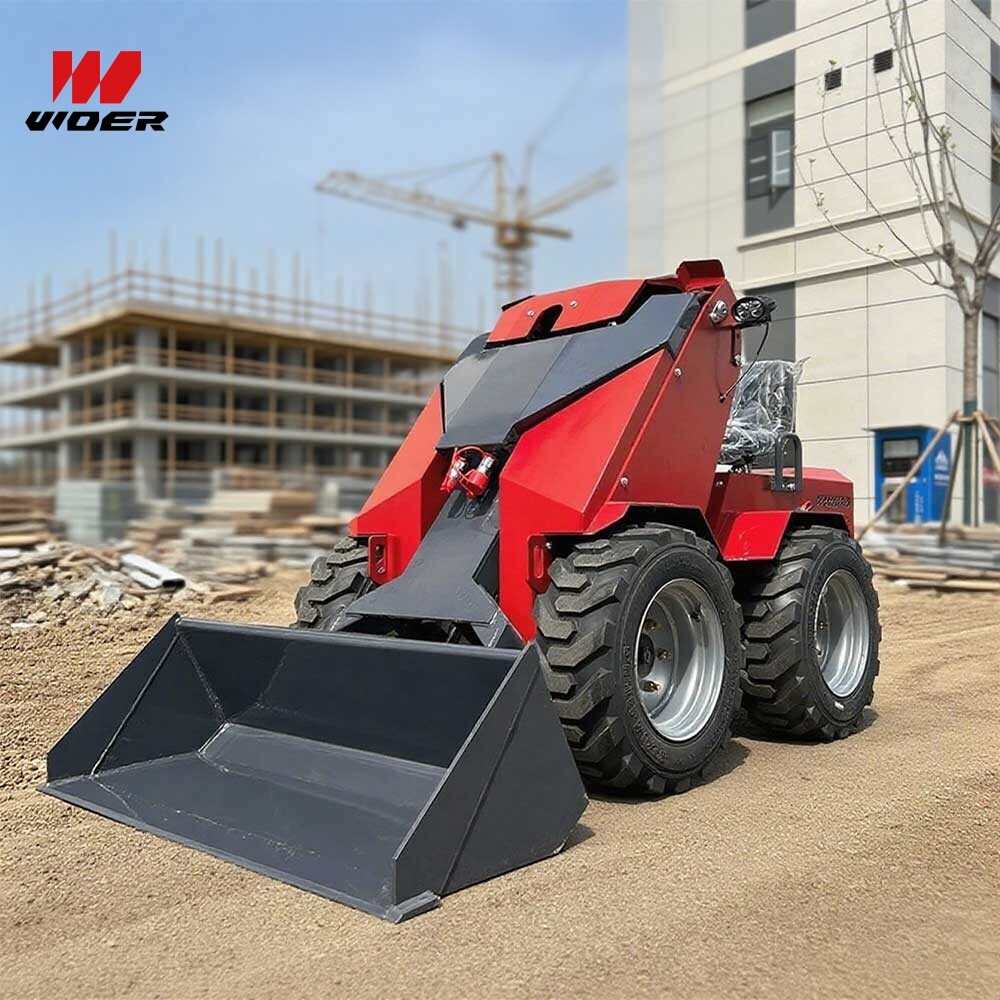Navigation
Contact us
Phone
Message

This guide explains china skid steer skid steer loader regulations and how they influence procurement, operation, and total cost of ownership for machines such as stand on skid steer loader mini and mini skid steer track loader skid steer loader models. It helps buyers and technical teams choose compliant, efficient equipment for wood processing and related applications.
What the EPA standards cover and why they matter
The U.S. Environmental Protection Agency (EPA) regulates emissions from nonroad diesel and gasoline engines used in skid steer loaders, compact track loaders, and crawler loaders. Modern requirements—commonly called Tier 4 or Tier 4 final for diesel—aim to reduce particulate matter (PM) and nitrogen oxides (NOx). For buyers of mini walk behind skid steer loader and mini crawler skid loaders, understanding these limits is essential: compliance affects engine technology, aftertreatment (DPF, DOC, SCR), fuel quality, maintenance cycles, and resale value.
Key technical elements
- Emission tiers: Tier 3, Tier 4 interim and Tier 4 final—each imposes stricter NOx and PM limits.
- Aftertreatment systems: Diesel particulate filters (DPF), diesel oxidation catalysts (DOC), and selective catalytic reduction (SCR) are common on compliant machines.
- Engine management: Advanced injection control and sensors are standard to meet transient and steady-state limits.
These technologies are present across a range of models from mini steer skid loader to larger skid steer loader crawler loader platforms, and even on track skid loader epa-compliant units.
How EPA compliance affects buyers and operators
Operational impacts are immediate and long-term. For technical evaluators and fleet managers, consider four primary areas: purchase price, fuel consumption and additives, maintenance needs, and regulatory exposure.
- Purchase price: Tier 4 machines frequently cost more upfront due to complex aftertreatment hardware.
- Fuel and fluids: Some systems require ultra-low-sulfur diesel and DEF (diesel exhaust fluid) for SCR systems.
- Maintenance: Periodic DPF regeneration and sensor upkeep increase scheduled service, although improved combustion can reduce engine wear.
- Compliance and resale: Certified engines ease permitting and resale in regulated jurisdictions.
Case in point: wood processing operations
In lumber mills where mini skid steer diesel crawler loader or track skid loader epa-compliant machines operate, airborne particulate controls and local air permits are often stricter. Choosing the right EPA-compliant model reduces inspection risk and avoids downtime linked to non-compliance.
Comparative table: Older vs. EPA Tier 4 machines
Procurement checklist for decision-makers
For buyers, contract writers, and financial approvers, use a structured checklist to compare offers. Include items such as certification documents (EPA engine family approval), expected fuel types, DEF storage, warranty terms for aftertreatment, maintenance intervals, and availability of parts and service.
- Confirm engine certification and emission tier in documentation.
- Estimate lifecycle costs: fuel, DEF, filters, and potential downtime.
- Verify operator training requirements and maintenance capability.
- Consider resale value and regional regulatory trends (e.g., local AQMD rules).
For compact timber handling, models such as mini walk behind skid steer loader and mini crawler skid loaders can be matched to site constraints; ask suppliers for real-world performance metrics—fuel burn, regen frequency, and service intervals.
Technical recommendations and common pitfalls
Operators often underestimate the impact of fuel quality and DEF management on aftertreatment health. Poor fuel or delayed DPF regeneration leads to blocked filters, increased downtime, and repair costs. Avoid the following common pitfalls:
- Failing to budget for DEF and specialized maintenance.
- Buying the cheapest compliant unit without service network support.
- Ignoring operator training on regeneration and fault codes.
For those specifying tracked variants—like mini skid steer track loader skid steer loader or track skid loader epa-rated units—ensure ground pressure and track selection match the timber yard surface to avoid underperformance.
Standards, verification and industry alignment
Besides EPA certification, buyers can look for compliance with international test norms (e.g., ISO emissions test cycles) and related standards from ASTM or EN for particulate measurement and filtering. These references help validate vendor claims and support procurement audits.
Cost-benefit summary for finance and procurement
While Tier 4 or EPA-compliant machines cost more initially, they often deliver lower long-term externality costs (fewer emissions-related fines, easier permitting) and can improve workforce health. Include a sensitivity analysis for fuel price, DEF consumption, and maintenance labor when evaluating TCO. Where available, consider machines advertised with incentives such as skid steer loader free shipping or bundled maintenance to reduce initial outlay.
Complementary equipment and integrated solutions
Wood processing operations frequently pair skid steer loaders with dedicated wood handling and splitting equipment. For example, consider the complementary solution: China Factory Supply Vertical Gas Powered Wood Splitter Portable Log Splitters for efficient log processing and reduced manual handling—this integration reduces cycle time and aligns with safety standards.
Final recommendations and next steps
Buyers and technical evaluators should: prioritize verified EPA-certified engines, require detailed TCO modeling, ensure dealers provide training and parts availability, and include aftertreatment warranty clauses. For site-level compliance, conduct a pre-purchase audit of fuel systems and service capability.
Why choose us
We combine practical field experience with recognized standards knowledge (EPA, ISO, ASTM) to advise procurement and operations teams in the timber processing sector. Our assessments evaluate both technical suitability—such as choosing between mini steer skid loader and mini crawler skid loaders—and commercial considerations to deliver machines that meet regulatory and business objectives.
Contact our sales and technical team for a tailored evaluation, compliance documentation review, and a comparative quote to support budget approval and procurement timelines.

This stunning beach house property is a true oasis, nestled in a serene coastal community with direct access to the beach.
Contact
West Street, Melbourne Victoria 3000 Australia